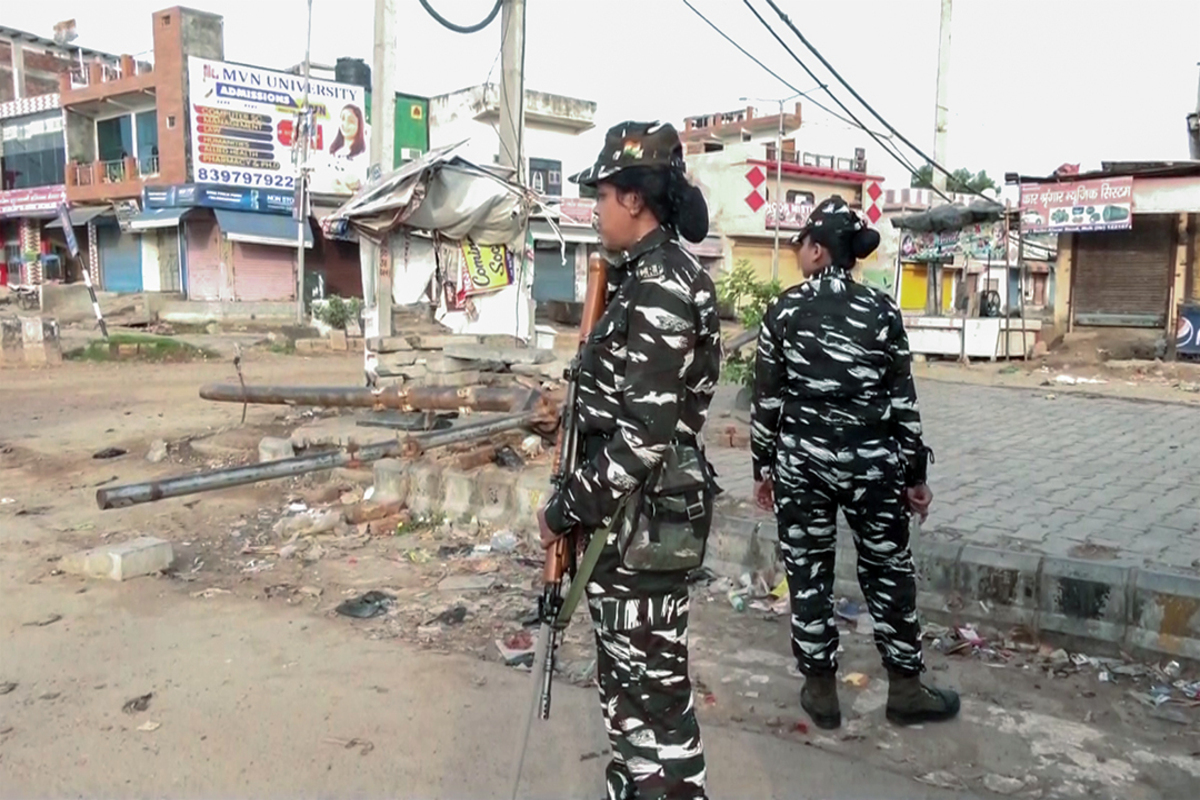Residents from the minority community in Tauru area of violence-hit Nuh region of Haryana have alleged mistreatment and torture following communal clashes on July 31 and are now staring at an uncertain future, being bereft of even a roof over their head.
Noor Mohammad, one of the affected residents, whose shanty was demolished by the authorities, expressed frustration at being unfairly targeted due to their ethnicity and questioned their involvement in acts of violence.
Advertisement
On August 2, the law enforcement agencies had demolished more than 200 shanties alleging that 14 youths from this settlement were engaged in stone-pelting during the violent clashes in Nuh district on July 31.
Around 150 migrant families found themselves in the spotlight after officials claimed that some of the residents were involved in rioting during the communal clashes.
The families residing in the Tauru slum, however, counter these claims, asserting that they have endured life in the area for up to a decade without receiving any formal notices of eviction or complaints against them.
In an attempt to substantiate their claims of nationality, some residents showcased their Aadhaar and PAN cards, serving as proof of their Indian identity. The community largely hails from West Bengal and Assam, and they vehemently oppose the allegations branding them as illegal Bangladeshi immigrants.
“Now after our house was demolished, for two days, we slept on roads and now we have shifted to one of his relatives, who lives in Gurugram,” said Noor Alam, a rag picker.
“I used to work in a company here and my house was also demolished. I, along with my family, had to return back to Assam as no one was giving us a house on rent and we had no place to live. I, along with my family, slept on the road for three days,” said Hashim, who has been living in one of the shanty since 2018.
“They termed us Rohingyas. We are not. We are residents of India and we too have rights,” said Hashim in a hushed tone.
Hasan Ali, another resident of the slum, shared the dire circumstances they faced.
“We are left with nothing – no food and no roof to sleep under, especially in the rainy season. We are not getting any help from authorities and no one else,” he lamented.
Hamza Khan, who also resided in the settlement, expressed concerns about the ongoing situation, highlighting that families from the area often travel to Assam or West Bengal to exercise their voting rights. “Now no option is left. Most of us have returned back to their homes and I will also leave soon,” said Khan.
Recent conditions in Nuh have cast a shadow of fear over the community, making them feel vulnerable to targeting at any time.
On the other hand, authorities claim that in the last four years, the shanties had been built illegally on land belonging to the Haryana Shahari Vikas Pradhikaran (HSVP) in Tauru area. While probing the violence, the police claimed that the majority of demonstrators had pelted stones in and around Tauru and targeted shops, police and people during clashes.











